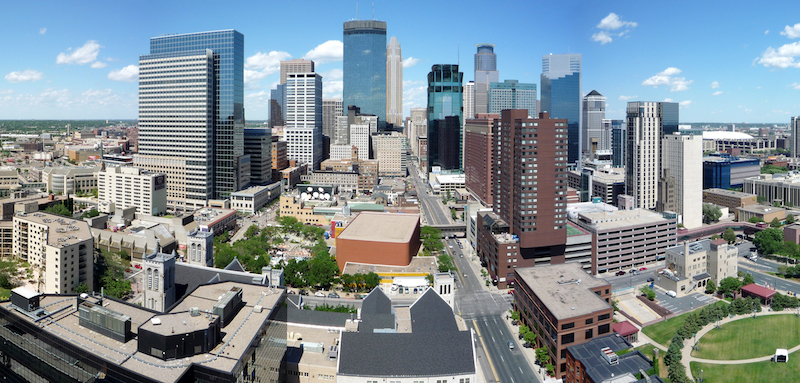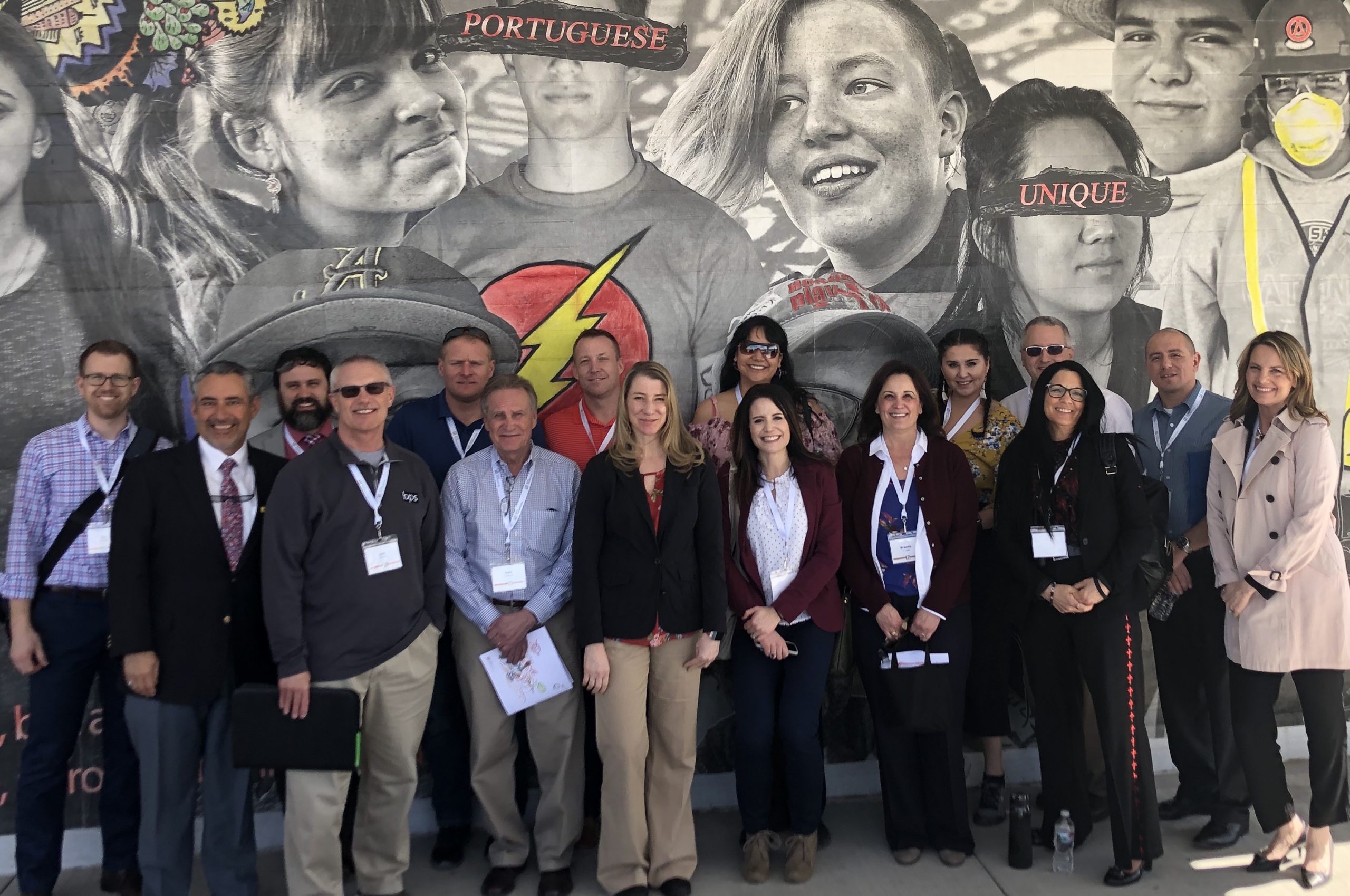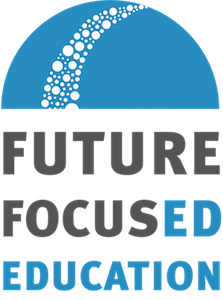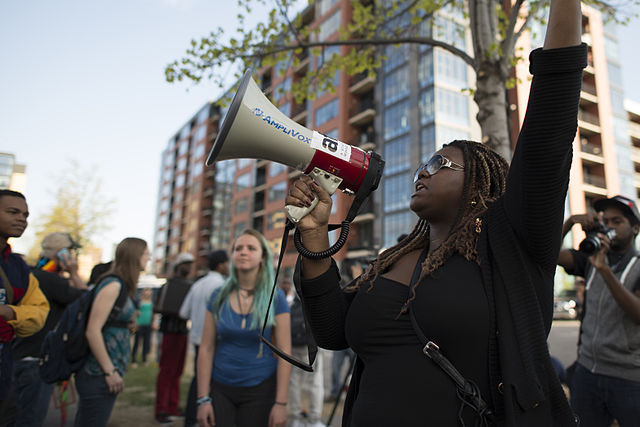How Future Focused’s Theory of Change is Taking Hold in Minneapolis
By Katie Barrett Kramer | Founding Partner, The School Leadership Project
Dan Cooley | Founding Partner, The School Leadership Project | March 13, 2020
UPDATE 5/29/2020

"A riot is the language of the unheard." Martin Luther King Jr.
At The School Leadership Project we think a lot about what it will take to provoke the scope of change necessary to ensure every student receives an education that honors their potential as a learner. What scope of change is needed so that every student is seen and valued as a human being?
Alongside members of school, cultural, and geographic communities here in the Twin Cities and across the Midwest, The School Leadership Project has been exploring the power and possibility of putting students and community at the center of conversations about educational change and justice.
As we’ve explored with our colleagues what this kind of radical re-centering of students and their people in traditional systems will take, we’ve looked for models that pursue student-centered learning in ways that acknowledge and celebrate student’s identities and the beauty and aspirations of the communities that nurture them. In this context, our partnership with Future Focused Education has been a powerful one.
Exploring What Student-Centered Means
As part of our work to support communities in our region in reclaiming and reimagining education, we have partnered with the Bush Foundation to offer the Learning Journey program. Student-centered learning is defined by the Bush Foundation as “learning that is relevant to who students are, how they learn and where they want to go.” To explore these dimensions and create momentum for student-centered learning, we design and lead Learning Journeys that offer communities and leaders space to think and plan for the school and systems change. we’ve.
Through this program, we’ve been honored to bring these leaders into the heart of Future Focused Education’s work.
What We Learned from Future Focused
Last year, we brought dozens of stakeholders to Albuquerque. One cohort represented the Native nations that share the geography of North and South Dakota, another the public school district in Bismarck, ND, and another the leaders of Indian Education in Minneapolis and St. Paul Public Schools. In every case, our stakeholders were warmly invited into Future Focused Education’s theory of change – that relationships are the currency of student success; that the ultimate measure of a school’s impact is the improvement of life in a community; and that young people can and will lead the change their community demands if given the power and support to do so.
Every member of the cohort who had the privilege to visit the Leadership Schools Network in Albuquerque can remember a moment of grace with a student. These are moments when the power of the FFE model is alive in the work of young people – creating and staffing a teen drop in center, supporting home daycares, helping folks maintain healthy diets in areas of food scarcity, and more.
It was possible to feel, in those moments, the momentum for schools that understand themselves to be working to create the relationships and nurture the confidence that allows young people to emerge as leaders in their communities.
In addition to the Learning Journeys, in partnership with the Phillips Family Foundation, Future Focused offered an Ed Café experience for schools of Minneapolis’ North Side. This area of Minneapolis has a rich history of genius and a challenging history of disenfranchisement. Through this experience, middle and high school teams experienced first-hand what it would mean to have community institutions partner with them to shape the course of student engagement and learning.
These conversations sparked authentic relationships between schools and neighborhood organizations, opening up internship and curricular opportunities.
Our Mindset Shift
Beyond these specific outcomes, however, the real legacy of the experience will be a mindset shift about whose wisdom and experience can and must be honored in student learning.
The Future Focused model presumes that there is profound local wisdom about the gifts and needs of a community. That wisdom should be the heart, not an ancillary part, of the trajectory of student learning. The idea of school for and with community, not just within community, is an idea that we hope and believe can take root in initiatives and programs in Minneapolis Public Schools and in schools across the Midwest.
Where to Go from Here
John Dewey told us that “school is life.” As life in the 21st century changes and challenges us, our schools and systems too often feel increasingly separate from the world of work and collaboration. Our students find themselves unprepared for these challenges as they pursue traditional academic preparation in high school. As a model for change, FFE’s schools offer not only practical ideas about how to reorganize time and resources but, more fundamentally, a new purpose for the endeavor of education itself.
Looking at the scope of the disconnect between school and “real life,” visionary leaders have offered new models that find students “leaving to learn” and pursuing internships with leaders in different sectors, creating relevance and social capital. Among the schools pursuing real-life learning, FFE stands out for the clarity of its purpose: creating healthy communities. Future Focused’s vision for change includes not just classroom practice, but a sense of shared destiny with the community and a re-centering of power and resources to the development of young people and their communities.

Future Focused gives The School Leadership Project cohort a tour of ACE Leadership High School during their Learning Journey visit to Albuquerque, a chance to see the Three Pillar Model in action.
As our region determines the character of its movement toward student-centered learning, our partnership with Future Focused, and their generosity in sharing their model and vision, offers a promise. It’s the promise that this movement will not be tied to faddish new methodologies, but grounded in the development of a new mental model grounded in a principle of community interdependence, which presumes that schools are responsible for the communities they serve and the change they create.
As the movement here grows, informed by this powerful model, we hope to move our work from the theoretical to the practical. It’s our hope that as our communities define a movement of student-centered learning for equity, the influence of Future Focused will continue to grow and guide the efforts to come.


